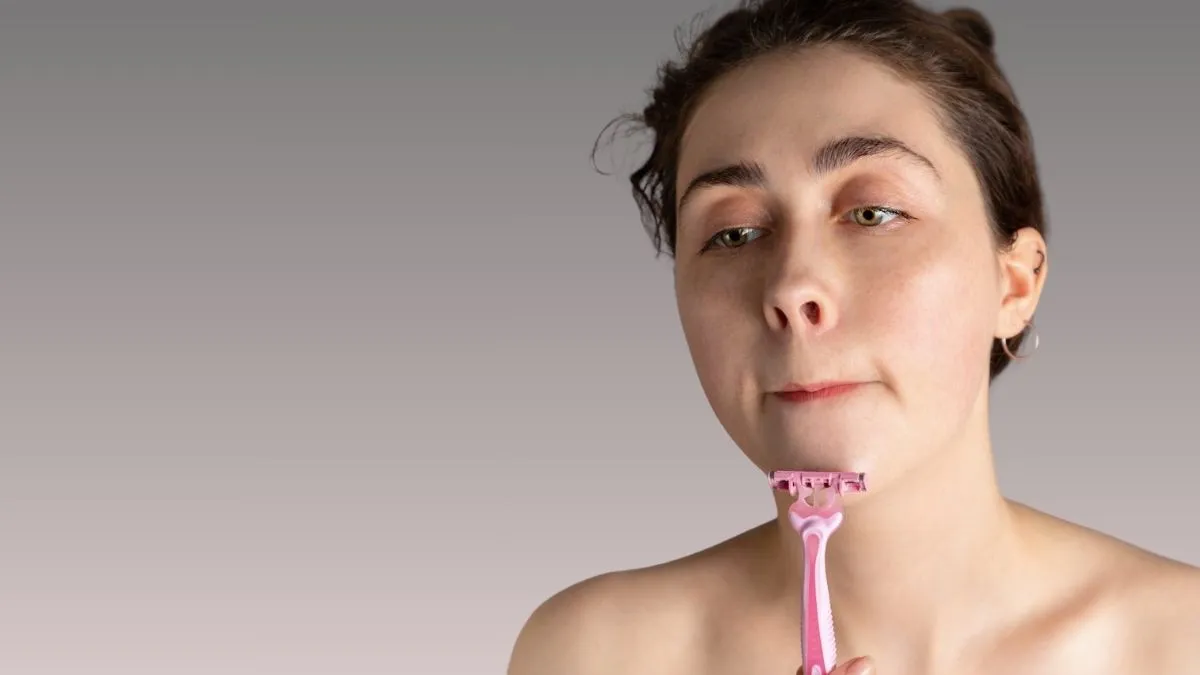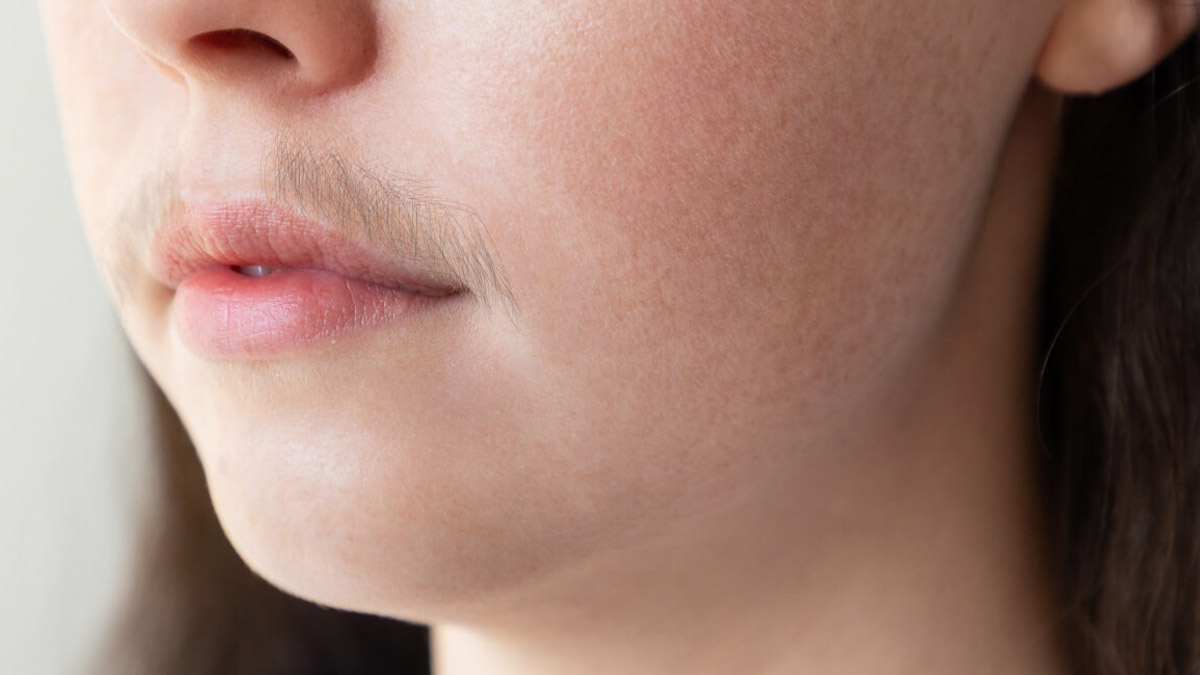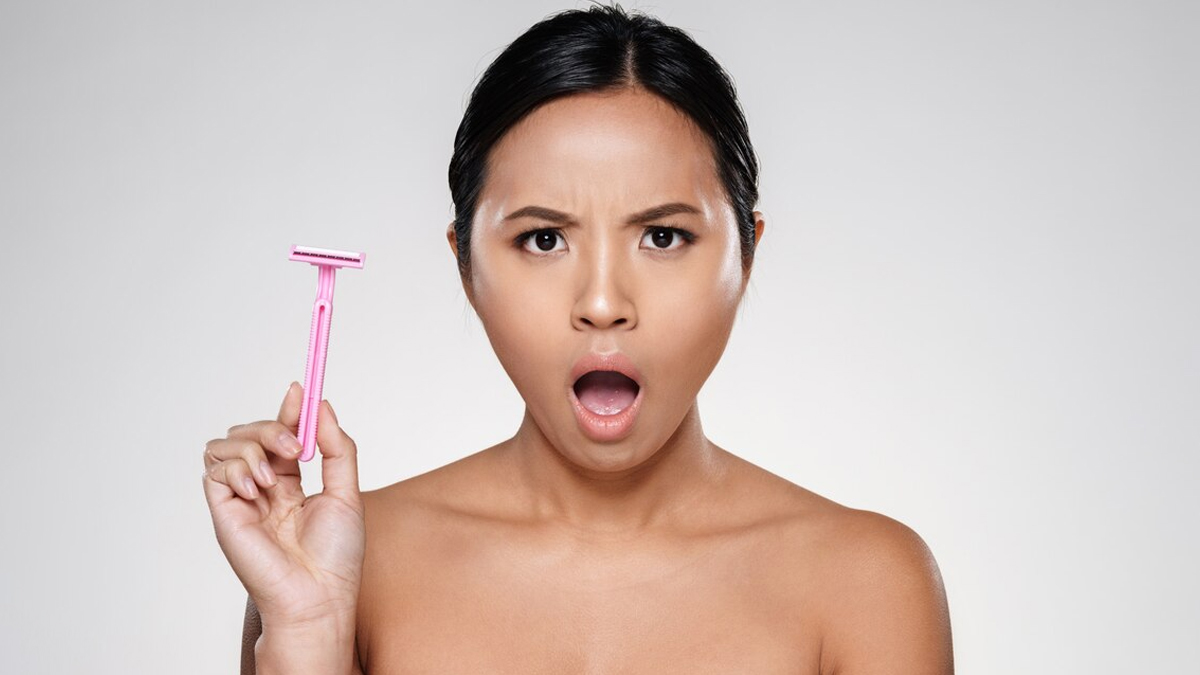
For most women, the sight of copious facial and body hair can be an enormous cause of distress and self-consciousness. Though some hair is normal, where it becomes quite thick and dark and occurs in areas more commonly seen on males (such as the upper lip, chin, chest, or back), it is usually a condition called hirsutism.
Table of Content:-
In an exclusive interaction with the editorial team of Onlymyhealth, Dr Sanjeev Gulati, Department of Dermatology, Sharda Hospital - Noida, explained that hirsutism is more than a cosmetic issue; it's often a sign of an underlying hormonal imbalance. Knowing the cause is essential to proper management and optimal overall health. Here is everything he shared with us and you need to know!
Hormonal Connection: Why Does Hirsutism Happen?
According to Dr Gulati, the leading cause of hirsutism is an overabundance of androgens, commonly known as ‘male hormones,’ that occur naturally in men and women, but in varying degrees. When androgen levels in females become too high, or when hair follicles are excessively sensitive to typical androgen amounts, it results in the development of coarse, dark hair. The following are the most prevalent causes of hirsutism:
1. Polycystic Ovary Syndrome (PCOS)
This is the most common cause of hirsutism, occurring in 5-10% of women in their reproductive years. PCOS is a complicated hormonal disorder of irregular menstrual cycles, ovarian cysts, and high levels of androgens. In addition to hirsutism, PCOS women may have acne, weight gain, and infertility.
2. Adrenal Gland Disorders
The adrenal glands, which sit atop the kidneys, secrete several hormones, some of which are androgens.

Also Read: Two Children Of COVID-19 victim Test Positive In Ludhiana; Under Quarantine
3. Thyroid Disorders
Less frequently, an underactive thyroid gland (hypothyroidism) may indirectly cause hormonal imbalances that result in excess hair growth.
4. Medications
Some drugs can have side effects of hirsutism. These include:
- Testosterone
- Danazol (for endometriosis)
- Minoxidil (for baldness, but resulting in unwanted hair in other places)
- Cyclosporine (immunosuppressant)
- Certain anabolic steroids
5. Idiopathic Hirsutism
Sometimes, there is no underlying medical cause that can be found, and hormone levels are normal. This is known as idiopathic hirsutism, implying that the hair follicles are more sensitive to usual amounts of androgens. This usually has a genetic tendency.
6. Cushing's Syndrome
An uncommon disease resulting from long-term exposure to excess cortisol levels, frequently due to an adrenal gland tumour or long-term administration of corticosteroid drugs. It can produce hirsutism, along with other effects such as weight gain, thinning of the skin, and hypertension.
When to See a Doctor
Dr Gulati explained, “If you are experiencing new or worsening excessive hair growth, especially if it's accompanied by other symptoms like irregular periods, acne, rapid weight gain, or voice deepening, it's crucial to consult a doctor.” A healthcare professional can help determine the underlying cause through a thorough medical history, physical examination, and blood tests to check hormone levels.

Also Read: Watch Out For Swimmer's Itch This Summer: Signs And Preventive Measures
Tips to Manage and Control Excessive Hair Growth
Once the cause has been established, a specifically individualised management plan can be formulated. Management strategies usually include a mixture of medical treatments and cosmetic interventions.
1. Medical Treatments
Oral Contraceptives (Birth Control Pills): In women with PCOS or other conditions of androgen excess, oral contraceptives may be highly beneficial. They do this by inhibiting ovarian androgen production and raising sex hormone-binding globulin (SHBG), which is a protein that binds free testosterone and diminishes its activity.
2. Anti-Androgen Medications
Spironolactone, flutamide, or finasteride may be used to inhibit the action of androgens on hair follicles. These are usually combined with oral contraceptives and need medical monitoring because of possible side effects.
3. Insulin Sensitisers
For women with PCOS and insulin resistance, drugs such as metformin may improve insulin sensitivity, which can subsequently reduce androgen levels.
4. Treating Underlying Conditions
If hirsutism is a result of an adrenal condition or thyroid problem, treating that underlying condition will frequently improve the hair growth.
Cosmetic and Hair Removal Strategies: Controlling the Visible Effects
When medical treatment corrects the underlying cause, cosmetic solutions can bring prompt relief from unwanted hair.
- Shaving
- Depilatory Creams
- Waxing
- Plucking/Tweezing
- Threading
- Electrolysis
- Laser Hair Removal
Bottomline
Excessive hair does more than just affect a woman's appearance. It can have a major impact on her sense of self and her lifestyle. It's worth noting that you are not alone! Hirsutism is a frequent disorder, and it occurs in many women. Controlling underlying conditions such as PCOS with diet, exercise, and stress management can positively affect your physical well-being as well as hirsutism.
Also watch this video
How we keep this article up to date:
We work with experts and keep a close eye on the latest in health and wellness. Whenever there is a new research or helpful information, we update our articles with accurate and useful advice.
Current Version